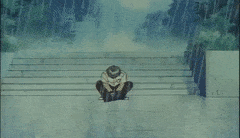What do you think?
Rate this book


289 pages, Kindle Edition
First published December 12, 2013



'All you can do with regard to your own life is choose the best path that you believe in. On the other hand, what kind of judgement do people pass on that choice? That is the task of other people, and is not a matter you can do anything about.'
“Do Not Live to Satisfy the Expectations of Others”